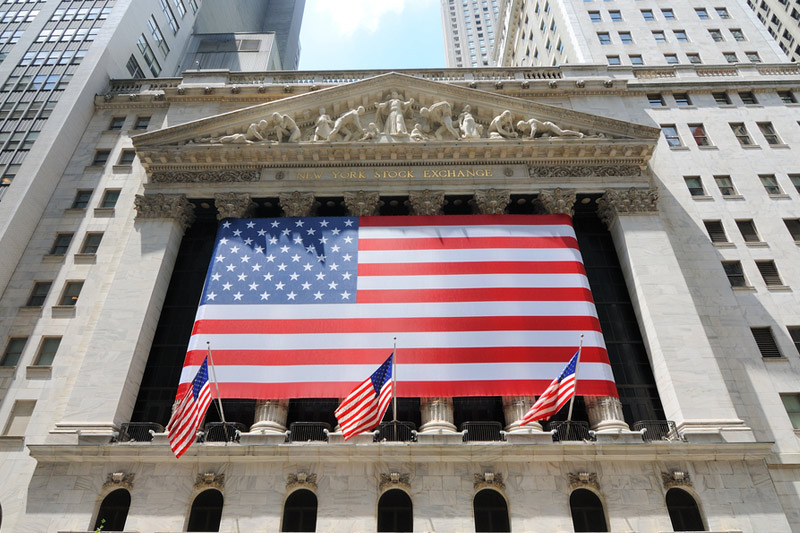It seems the standoff is coming to an end; Republicans in the US House of Representatives have agreed to advance a debt ceiling agreement with President Joe Biden from today.
The government will now attempt to pass the agreement through Congress before it runs out of money early next week, with a vote likely to take place today.
European markets appeared reluctant to commit without a formal deal, however, showing little movement on Monday with a number of markets closed for public holidays.
Technology (-0.7%) and bank (-0.4%) stocks fell while insurance stocks (+0.2%) and energy (+0.1%) climbed on light trading.
The FTSE300 followed suit, shedding 0.1%, while the Turkish Borsa Istanbul 100 index bucked the trend to rise 4.1% after President Tayyip Erdogan took home the runoff election.
Stateside, the US equity market was shut on Monday in honour of the Memorial Day public holiday.
Despite the closure, US equity futures indicated modest gains, suggesting cautious optimism among investors about the US avoiding a default given the weekend's preliminary debt ceiling deal.
Dow Jones index contracts were slightly up by about 0.1%, with the S&P 500 and the Nasdaq 100 showing gains of around 0.3% and 0.5% respectively.
In the news
AI: avoid getting burned without missing out
In the wake of Nvidia's remarkable market performance, Nigel Green, CEO and founder of deVere Group, an independent financial advisory, asset management, and fintech firm, has sounded a cautionary note for investors exploring the booming Artificial Intelligence (AI) sector.
Nvidia, recognised as the world's most valuable semiconductor company, startled the stock market last week by posting first-quarter earnings results that substantially exceeded expectations.
Further compounding investor excitement, the tech giant issued exceptionally upbeat guidance for the second quarter.
The session ended with Nvidia’s stock up 25%, adding some US$200 billion in market value to the company.
“The dazzling earnings from Nvidia have added more fuel to the already high-octane AI boom,” said Green.
“The Big Tech earnings season was dominated by relentless AI detail.
“Now this turbocharged semiconductor firm's results are helping drive the explosion in interest in AI that started back in November 2022 when the Microsoft-backed chatbot ChatGPT took the world by storm.
“It currently has 1.3 billion users. It crossed 1 billion users in March, representing an increase of almost 55% from February to March. This makes it the fastest adopted technology in history.”
Green cites AI’s oversized potential to fundamentally transform parts of society and business as the core reason AI stocks should have a place in most investors’ portfolios.
He believes the benefits to be “potential strong returns, risk management, diversification possibilities and future-proofing advantages because as the use of AI continues to grow and become more pervasive, those companies that fail to adopt this tech may be at a competitive disadvantage.”
Professional services consultancy PwC estimates AI productivity savings and investments could lead to some $15.7 trillion in additional global economic output by 2030, which would put it on par with the gross domestic product of China.
“AI is already changing the world in monumental ways and, naturally, investors don’t want to miss out,” Green said. “But they must take a cautious approach to the AI boom to avoid getting ‘burned.
“Things are evolving fast and, as ever, there will be winners and losers in this boom.”
So, what are his tips for avoiding the heat?
“First, rather than rushing to back potentially over-valued, hot new start-ups, stick to the big tech groups,” Green suggests.
“These companies have huge reserves of capital, which means they can invest heavily in the best research and development, plus they are diversified so they are more resilient.
“Second, a good fund manager who will help select winners from losers, allowing you to make informed, balanced decisions to build your wealth.
“Third, remember, the real AI benefits are coming down the line – we’re still very early – so take a longer-term approach to investing in this disruptive, transformative tech.”
AI is the future, says the deVere CEO, and we know from the past that early investors in innovative technologies often reap enormous rewards, but a ‘buy everything’ mindset must be avoided.
“Don’t miss out, but exercise caution,” he concludes.
US dollar gains; oil and base metals climb
The US dollar climbed in overnight trading, driving other major currencies lower.
The Euro took a tumble, dropping from US$1.0742 to US$1.0704, and was hovering near US$1.0710 during the afternoon trade in North America.
The Australian dollar also dipped, shifting from US$0.6551 cents to US$0.6526 cents, and was nearly US$0.6540 by the end of the day.
However, the Japanese yen bucked the trend, edging higher from 140.52 yen per US dollar to JPY140.12 and was near JPY140.45 in the North American afternoon trade.
Meanwhile, global oil prices saw a marginal increase on Monday in erratic trading.
Investors weighed the potential implications of a tentative US debt ceiling deal — which could stave off a default by the world's leading oil consumer — against possible US Federal Reserve interest rate hikes that could temper energy demand.
The Brent crude price added US$0.12 or 0.2% to settle at US$77.07 a barrel. The US Nymex crude price advanced US$0.37 or 0.5% to US$73.04 a barrel in after-hours trade.
Base metals climbed during Chinese trading; Shanghai copper futures surged 2.1%, while aluminium futures climbed 0.9%, buoyed by improved risk sentiment following the suspension agreement for the US government's debt ceiling.
Both the London Metal Exchange and US futures markets remained closed on Monday.
The gold futures price dropped slightly by US$2.30 or 0.1% to US$1,942.00 an ounce in after-hours trade on Monday, with spot gold trading near US$1,943 an ounce.
Meanwhile, iron ore futures rose modestly by US$0.21 or 0.2% to US$105.12 a tonne in Singapore trade on Monday, spurred by signs of increasing Chinese steel production.
The uptick came after a minor slide of US$0.19 or 0.2% to US$105.41 a tonne in the Chinese iron ore futures price last Friday.
